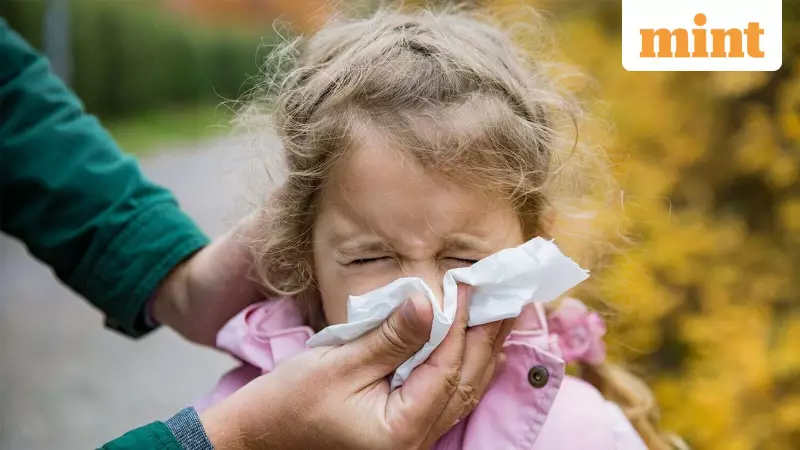
As winter's chill sets in, bringing with it the warmth of family gatherings and comforting hot chocolate, a less welcome guest often arrives for many families: winter allergies. With Children's Day 2025 upon us, the focus shifts not just to celebration but to safeguarding the health and comfort of our children during the colder season. While parents diligently bundle up their little ones in warm sweaters, understanding and tackling winter allergies is crucial for their well-being.
Why Winter Worsens Allergies in Children
Winter, despite its festive charm, presents a unique set of challenges for children's health. The season's triggers are often hidden within our cosy homes. Dr Neeraj Arora, Senior Consultant - Paediatrics & Neonatology at Manipal Hospital, explains the core issue. He tells us that "Frigid air, dry heat from indoor systems, and dust build-up in the home can cause problems for many children." A critical point he highlights is that, unlike a common cold that runs its course, allergies are persistent and often require proper medical intervention to manage effectively.
Is It a Cold or an Allergy? Spotting the Difference
Distinguishing between a common cold and winter allergies can be tricky for parents due to overlapping symptoms. However, being vigilant about specific signs can guide the right course of action.
Persistent cough or cold: When a child's dry cough, sneezing, or runny nose lingers for more than a week, it's a strong indicator of winter allergies rather than a temporary viral infection.
Eye irritability: Keep an eye out for frequent eye-rubbing or the appearance of unexplained dark circles under the eyes, as these are common allergy signals.
Dry or itchy skin: The combination of cold outdoor air and dry indoor heating can strip moisture from the skin, leading to rashes, irritation, and general discomfort that makes children fussy.
5 Practical Steps to Protect Your Child from Winter Allergies
Proactive measures can significantly reduce the impact of winter allergies on children. Here are five expert-recommended strategies for parents.
1. Maintain Clean Surroundings: A clean home is your first line of defence. The paediatrician advises regularly dusting, vacuuming, and cleaning children's rooms to minimise dust mites and other allergens. Washing bed linens and soft toys in hot water weekly is highly effective.
2. Invest in Air Purifiers: Indoor air quality becomes paramount in winter. "Air purifiers can help remove dust, pet hair, and other allergens from the air, making it healthier for your children to breathe," says the neonatologist. Opt for models with HEPA filters for the best results in trapping tiny particles.
3. Limit Soft Toys: While beloved, soft toys are magnets for dust and dirt. To maintain a cleaner bedroom environment, doctors suggest limiting their number and choosing machine-washable options for easy cleaning.
4. Implement Steam Therapy and Hydration: Steam is a natural and effective way to relieve nasal congestion. Supervise your child as they inhale steam from a bowl of hot water or take a warm shower. Ensuring they drink enough fluids throughout the day helps thin mucus; warm water with honey can be a soothing and hydrating treat for a sore throat.
5. Seek Timely Medical Advice: If symptoms persist, consulting a doctor is essential. Early testing can identify specific allergies and inform a treatment plan. "Depending on the severity of the allergies, a doctor may recommend medications, nasal sprays, or mild steroids to alleviate symptoms," says the expert. For chronic cases, immunotherapy can be a long-term solution to build resistance.
(Note to readers: This article is for informational purposes only and not a substitute for professional medical advice. Always seek the advice of your doctor with any questions about a medical condition.)





